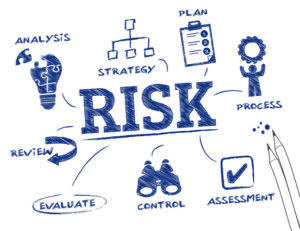
Explore how blockchain technology is transforming accounting with enhanced transparency, efficiency, and real-time financial insights. This includes integrating data from a prior period as those data become available (accounting for subsequent events or adjusting for under/over applied overhead are examples). The ability for a double-entry accounting system to make such adjustments is crucial to its utility in the modern world. Blockchain negates this ability, making substantiation less beneficial than promoters claim. Additionally, just because a transaction cannot be modified, that provides no assurance that it was entered properly in the first place. Paystand is on a mission to create a more open financial system, starting with B2B payments.
How will blockchain technology affect the accounting industry?
Furthermore, smart contracts, self-executing code residing on the blockchain, enable automated and predefined actions when certain conditions are met. This feature has profound implications for accountancy, as it can facilitate real-time audits and automated compliance, reducing the need for extensive manual oversight. Smart contracts, a key innovation of blockchain, are influencing accounting practices by automating and enforcing contractual Remote Bookkeeping agreements without intermediaries. These self-executing contracts trigger specific actions once conditions are met, leading to efficiency gains in transaction processing and compliance.
Automated audit processes
Implementing blockchain technology in accounting can eliminate potential fraudulent actions in the following ways. Smart contracts can contribute to payroll automation by the automatic proceedings over the salaries only when the predefined conditions blockchain in accounting are met. Secondly, in blockchain, the payments will be analyzed only when the ID of the verified worker matches with the work records.
Blockchain Implementation in Accounting & the Role of the Auditors
- Secondly, in blockchain, the payments will be analyzed only when the ID of the verified worker matches with the work records.
- For example, if a financial threshold is met, a smart contract can autonomously trigger an audit.
- Despite the technological challenges blockchain presents for them, accounting firms are exploring and implementing blockchain solutions to improve their operations and services.
- Inside each block header, the Merkle root represents a summary of all the transactions included in the block in the form of a hash.
- The technology’s transparent and immutable ledger ensures accurate and tamper-proof financial records.
- Blockchain technology eliminates the need for manual data entry and reduces the risk of human error.
- Smart contracts also ensure transparency and traceability by recording every transaction on the blockchain, creating an immutable ledger accessible to all parties.
This innovation promotes privacy, reduces fraud, and empowers vulnerable populations. By recording each step of a product’s journey on a shared ledger, they minimized the time required to track the source of contaminated food, improving consumer safety. This approach enhances transparency, allows quick recalls, and builds trust between suppliers, distributors, and consumers. While blockchain technology offers transformative potential in accounting, it also comes with a set of challenges that need to be considered.

Tamper-proof financial records

Access to the network and data is subject to the individual responsible for the environment. Blockchain represents an opportunity, not a threat, with future accounting and auditing services likely to include some consideration of blockchain. Although the technology is rapidly evolving and will likely have an impact on accounting and auditing, some skepticism is warranted regarding potential benefits and ease of implementation.
Blockchain in Accounting: Transforming Financial Practices
The blockchain enables the implementation of a system of accounting that requires transaction verification from a neutral third party. A total of three entries will be created, because each party (the two parties involved in the transaction and the intermediary) creates a record for the transaction (Grigg 2005). Rick is a highly accomplished finance and accounting professional with over a decade of experience.
- Auditors can access the shared ledger to verify transactions, eliminating the need for extensive manual reconciliation.
- If you’re eager to learn how blockchain is revolutionizing the world of accounting and finance, join us on this journey.
- Its potential cannot be overstated in the accounting world, where these aspects are crucial.
- Smart contracts offer revolutionary potential for automating intricate accounting processes.
- As businesses adopt blockchain operating systems (OS), understanding their implications on financial processes is essential.
- Overcoming the lack of familiarity can be achieved through education and training programs that empower accountants and auditors to navigate the technology confidently.
It prevents fraud and corruption and ensures the integrity and reliability of the data. Blockchain technology is a system of storing and transferring data that benefits the Accounting industry. Fees contra asset account can fluctuate based on network congestion, transaction size, and speed requirements. Accountants must develop strategies to manage these fluctuations, such as timing transactions during off-peak periods or using platforms with more predictable fee structures. Understanding blockchain protocols and market dynamics is crucial for optimizing transaction costs.


Blockchain’s integration into accounting heralds a transformative era for financial processes. Its tamper-proof ledger ensures data accuracy, reducing the likelihood of errors and fraudulent activities. The automation capabilities of smart contracts streamline operations, enabling accountants and auditors to focus on strategic analysis. Blockchain can transform the auditing process by allowing real-time monitoring of financial transactions.
